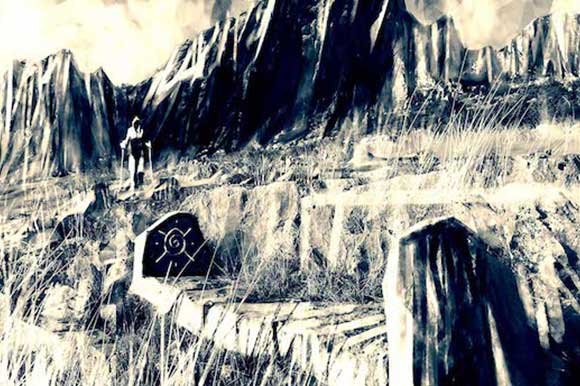 MARKET ANALYSIS 2021
MARKET ANALYSIS 2021
ZAGREB: The total gross of Croatian cinemas surged from 5.9 m EUR in 2020 to 11.7 m EUR in 2021, mainly due to cinemas reopening after the lockdowns. Box office for Croatian films jumped from only 77,600 EUR in 2020 to 840,164 EUR in 2021, which is close to 1 m EUR in the pre-pandemic year 2019. The number of domestic releases in 2021 was 17, compared to 19 releases in 2020.
The amount spent by international productions filming in Croatia was 25.8 m EUR / 195.8 m HRK, with 16 international projects spending a total of 413 days in the country. This is seen as a big recovery after the troublesome COVID-19 year, when nine projects filmed for 161 days and spent only 11,6 m EUR / 87,3 m HRK in the country.
PRODUCTION
Sixteen Croatian feature films were shot in 2021 with the support of the Croatian Audiovisual Centre (HAVC). Two TV series by Dalibor Matanić were also filmed.
Director Dubravka Turić, winner of the Venice Horizons Award for the short film Belladona in 2015, shot the second half of her debut feature Traces / Tragovi. The first part of the film was filmed in September 2020. Produced by Kinorama and coproduced by Romania’s MicroFILM, the film is a drama with mystical elements that encompasses the four seasons of a single year, following middle-aged Ana (Marija Škaričić), who is struggling to understand the connections in her life.
The directorial duo Andrija Mardešić and David Kapac filmed their debut feature The Uncle / Stric. This is also the first feature film produced by the renowned short film production company Eclectica, in collaboration with Serbia’s SENSE Production. The story seems to be set in Yugoslavia in the late 1980s, when a family welcomes their beloved uncle, who has returned home for the holidays from Germany. All is well until a smartphone starts ringing, a sign that it is not the 80s and not even Christmas.
Vanja Juranić filmed her sophomore feature Closed to the Public / Zatvoreno za javnost, produced by Croatia’s Maxima Film in coproduction with Serbia’s Biberche. The film follows 28-year-old Tina, who expresses the desire to continue the studies she interrupted due to her pregnancy, but her husband begins a quiet but persistent rebellion that leads to his tragic end.
In 2021, Juraj Lerotić filmed his debut feature Safe Place / Sigur nomjesto produced by PIPSER. In the early stages of development, the project won the Eurimages Co-production Development Award at 2018 Cinelink. Safe Place is an intimate family drama set within 24 hours. The events triggered by a sudden suicide attempt of Damir reveal the shortcomings of the health system, but also a deep inability to deal with crisis within his family.
Radislav Jovanov Gonzo, a famous Croatian music video director, also filmed his debut feature in 2021. Punim plućima produced by Fade In is set in early 2000s, when a death of an old school friend reunites a crew of “eternal students”, whose youth was disturbed by war in the 1990s. The reunion becomes a Pandora's box that slowly opens the most difficult questions of life.
Goran Dević, known mostly for his documentaries, filmed the feature drama What's to Be Done? / Što da se radi? Produced by Petnaesta umjetnost, the film follows a personal struggle of 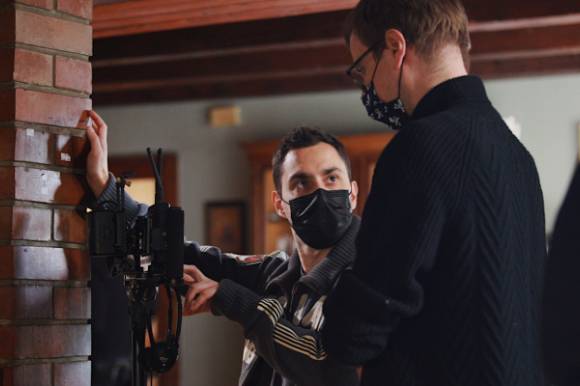 the head of the union at the Gredelj railway car factory. He is torn between the guilt he feels because of his deputy’s suicide and the workers’ expectation that he’ll lead a strike that should thwart the government’s plans, ordered by the EU, to send the company to bankruptcy.
the head of the union at the Gredelj railway car factory. He is torn between the guilt he feels because of his deputy’s suicide and the workers’ expectation that he’ll lead a strike that should thwart the government’s plans, ordered by the EU, to send the company to bankruptcy.
Simon Bogojević Narath, known for his animation and CGI work, filmed his first feature film llyricvm. Set in 36 BC, the film follows a young Illyrian shepherd Volsus, who takes up service with a unit of Roman legionaries passing through his village, in exchange for a goat for his poor family. The film is produced by Kinorama in coproduction with Slovenia’s Forum Ljubljana, Italy’s La Sarraz Pictures, Kosovo’s Buka Production and Bosnian SCCA/Pro.ba.
Vlatka Vorkapić filmed Holy Family / Sveta Obitelj, a feature drama set in the agricultural region of Slavonia in 1960s. Developed for 13 years, the film is coproduced by Croatia’s Interfilm and Serbia’s Zillion film. It introduces the famous Serbian actor Nikola Đuričko to Croatian film, following a story of a wealthy villager who decides to marry off his son, in a story that digs deep in the underbelly of the mid-20th century patriarchy.
Filip Heraković filmed his debut feature The Pelican / Pelikan, produced by Wolfgang& Dolly. The film follows Josip, a goalkeeper recovering after a career-ending injury. Faced with a major life change, Josip goes through an identity crisis and decides to introduce himself as someone else, after being confused for a sales representative of robotic vacuum cleaners. The main role is played by Edi Ćelić, actor of the Croatian National Theatre in Rijeka.
Andrej Korovljev, also known for his documentary work, filmed his debut feature Pula, produced by Kinematograf. Bosnian actor Ermin Bravo took the lead role of Mahir, a refugee from the 1990s war who develops a romantic affair with a much younger Croatian girl. The film is set in wartime Pula, the coastal Croatian city that served as a safe haven for thousands of people displaced during the ex-Yugoslav war.
Pavo Marinković, the artistic director of the Pula Film Festival, shot his new feature film The Miljacka Vampires / Vampiri s Miljacke. The immigrant comedy explores the relationship between the "civilised" West and the "temperamental" Balkans through the story of a Sarajevo man who, after 20 years of living abroad, is desperate to extend his residence permit in Austria. The film is produced by Croatia’s Telefilm in coproduction with Austria’s Nanook Film.
Jasna Nanut, known for her TV reporting work and successful short films, filmed her debut feature Seventh Heaven / Sedmo nebo. Produced by Petnaesta umjetnost, the film explores the funny side of a midlife crisis. At the heart of the story is a man torn between his wife, mistress, children, weight, work, a dog, and high blood pressure, and who becomes increasingly entangled in a web of his own high expectations.
Goran Kulenović filmed his new feature film The Death of the Little Match Girl / Smrt djevojčice sa šibicama, based on a novel by famous Croatian writer Zoran Ferić and produced by LivadaProdukcija. The story follows a pathologist who gets involved in the investigation of a mysterious murder of a Romanian prostitute in a small-town microcosm.
Lukas Nola filmed Escort produced by Kinorama in coproduction with North Macedonia’s Skopje Film Studio and Kosovo’s Buka Production. Escort is a modern blend of black comedy drama and crime thriller, following the story of a commercial producer who ends up in trouble after spending a night with a sex worker. The premiere is expected for mid-2022, in time for the Pula Film Festival.
Arsen Oremović, known as a film critic and documentary director, filmed his debut feature The Head of a Big Fish / Glavavelikeribe, produced by Izazov 365. Based on the motifs of Ognjen 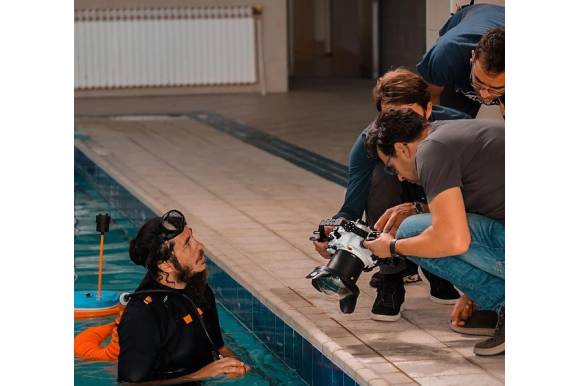 Sviličić's book of the same name, the screenwriting was mentored by Romanian screenwriter Răzvan Rădulescu. Following the story of a war veteran and his business-savy brother, the film paints a picture of today's Croatia crucified between war and peace, idealism and consumerism.
Sviličić's book of the same name, the screenwriting was mentored by Romanian screenwriter Răzvan Rădulescu. Following the story of a war veteran and his business-savy brother, the film paints a picture of today's Croatia crucified between war and peace, idealism and consumerism.
Kristijan Milić filmed his new feature film Anger of God / Božji gnjev, produced by Eurofilm. The film is a continuation of a fruitful collaboration between the Croatian director, famous for his war films, and the Bosnian writer Josip Mlakić, who has co-written three scripts with Milić so far. Anger of God is based on his bestselling book about Croatian soldiers in shady undercover operations in Bosnia during the 1990s war.
The filming of foreign productions in Croatia has returned to pre-pandemic levels, with 16 projects filming for a total of 413 days and spending 26.1 m EUR / 195.8 m HRK in the country.
The two biggest projects were the British series The Ipcress File by James Watkins, produced by Altitude Television and ITV Studios, and serviced by MP-film production, which filmed in Zagreb, Opatija, Lovran, Rijeka, Split, Brela and Krk in April - June 2021, and the period drama Hotel Portofino by Adam Wimpenny, produced by Eagle Eye in association with Beta Film, which was serviced by Drugi plan and was filmed in Opatija, Lovran, Rovinj, Pula and Bale in June - July 2021.
Crossing by Jacqueline Van Vugt, a coproduction between the Netherlands, Belgium and Croatia (Nukleus film), was also filmed in May 2021, as part of the incentive programme.
In July 2021, the German TV film The Summer in Istria / Ein Sommer in Istrien by Tomasz E. Rudzik, produced by Moviepool GmbH and serviced by PAKT Media, was shot in Istria, while the American Netflix film The Weekend Away directed by Kim Farrant was filmed in Split with the help of Croatian PAKT Media.
The shooting of the German feature film Over & Out directed by Julie Becker started in Istria at the end of August 2021, again serviced by PAKT Media.
The end of the summer saw the start of the shooting of the British series Conversations with Friends directed by Leanne Welham and Lenny Abrahamson (produced by Element Pictures and serviced by Embassy Films), the German feature film Faraway directed by Vanessa Jopp (produced by Olga film and serviced by PAKT Media), the Swedish/British Netflix series Spotify directed by Per-Olav Sørensen and serviced by MP-film production, and Infinity Pool, a coproduction between Canada’s Film Forge and Elevation Pictures, directed by Brandon Cronenberg 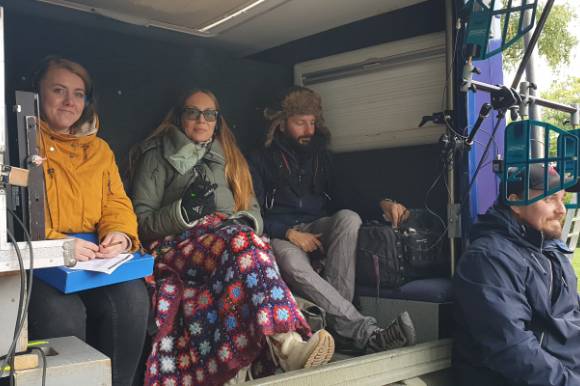 and coproduced by Croatian 4film, Hungarian Herosquared and France’s Celluloid Films.
and coproduced by Croatian 4film, Hungarian Herosquared and France’s Celluloid Films.
As of July 2018, the cash rebate for filming in Croatia was raised from 20% to 25%, and up to 30% in underdeveloped regions.
The total amount spent by foreign productions using cash rebates since the start of implementing the Incentive Measures Programme exceeded 173.8 m EUR / 1.3 billion HRK by the end of 2021, with a total of 95 applications submitted by foreign production companies.
DISTRIBUTION
A total of 235 films were released in regular distribution in 2021, compared to 179 in 2020. Out of 173 new releases in 2021, 17 were domestic, compared to 19 in 2020.
The biggest domestic distributor is Blitz, with more than 70% of the Croatian box office, followed by Editus, Continental Film and Discovery. The domestic distribution network includes 104 cinemas with 200 screens, of which 18 miniplexes and multiplexes, and 86 traditional cinemas.
Seen from the perspective of festival placement, 2021 is certainly among the most successful in the history of Croatian cinema, despite the obstacles related to the COVID-19 pandemic. During 2021, Croatian films were selected for over 300 international festivals, including Berlin, Cannes and Venice, and won dozens of awards.
The most trophy-winning title in 2021 is Marko Dješka's short animated film All Those Sensations in My Belly, which was screened at 88 festivals, including the Annecy International Animated FF, and which won 16 awards. The film was produced by Adriatic Animation in coproduction with Portugal’s BAP animation studio, and it is distributed by Bonobostudio.
The year was also marked by the stellar performance of Antoneta Alamat Kusijanović's debut feature Murina,which had its world premiere in the Quinzaine des Réalisateurs section in Cannes, where it won the Camera d’Or for best debut, after which it screened at another 38 festivals, winning additional 10 awards. Murina was produced by Croatia’s Antitalent and Brazil’s RT Features, and coproduced by Croatia’s Spiritus Movens, Sikelia Prods from the USA and Slovenia’s SPOK Films and Staragara. KBMO released the film in France, and Modern Films secured theatrical releases in the UK and Ireland.
For the first time, one Croatian TV series was awarded at Series Mania in Lille, France. The honour went to The Last Socialist Artefact / Područje bez signal by Dalibor Matanić, produced by Croatia’s Kinorama and coproduced by Serbia’s Sense Production, Slovenia’s Perfo Production and Finland's Citizen Jane.
The Croatian minority coproduction Bad Luck Banging or Loony Porn / Babardeală cu bucluc sau porno balamuc directed by Radu Jude won the Golden Bear at the 71st edition of the Berlin IFF. The film was produced by Romania’s microFILM in coproduction with Luxembourg's Paul 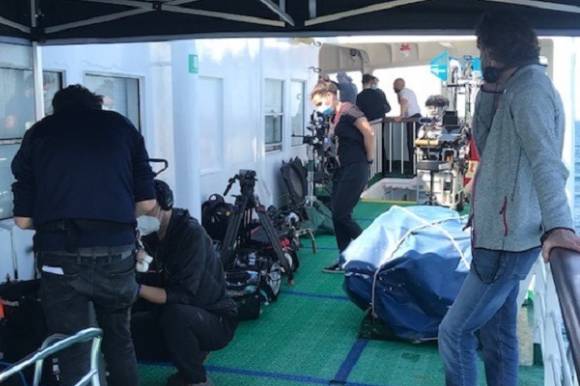 Thiltges Distributions, Czech Republic's endorfilm and Croatia's Kinorama.
Thiltges Distributions, Czech Republic's endorfilm and Croatia's Kinorama.
As part of the Sofia IFF, Dalibor Matanic's feature film Dawn / Zora, produced by Kinorama, was screened as part of a competition for films from the region, and later got released on HBO. Zrinko Ogresta's film Blue Flower / Plavi cvijet had its world premiere in the main competition programme of the 43rd Moscow IFF, and later won the Grand Golden Arena at the Pula Film Festival.
After a long time, a Croatian film was part of the main competition of the Karlovy Vary IFF. The debut feature film by Sonja Tarokić, Staffroom / Zbornica produced by Kinorama, won the Special Award from the main jury of the Crystal Globe Competition, as well as the Ecumenical Jury Award.
The joint project of the Croatian State Archives - Croatian Cinematheque and HAVC, a restored version of one of the best Croatian films of all time by Nikola Tanhofer, the drama H-8 produced by Jadranfilm in 1958, has been selected for the Venice Classics programme of the 78th Venice IFF. Screenings from this section were supposed to take place during the festival in September 2021, but due to the pandemic they were postponed to February 2022.
The long documentary Museum of the Revolution / Muzejrevolucije by Srđan Keča, produced by Croatia’s Restart and Serbia’s Uzrok, and coproduced by Czech Nutprodukce, the Croatian Radiotelevision, Al Jazeera Documentary Channel and Germany’s GEO Television, had its world premiere at the 34th edition of the International Documentary Film Festival in Amsterdam - IDFA.
EXHIBITION AND BOX OFFICE
A total of 235 films, including 173 new releases, were distributed in regular distribution in 2021, compared to 179 in 2020.
The total admissions were 2,458,853 compared to 1,388,742 in 2020. Total gross reached 11.7 m EUR / 88.3 m HRK, compared to 5.9 m EUR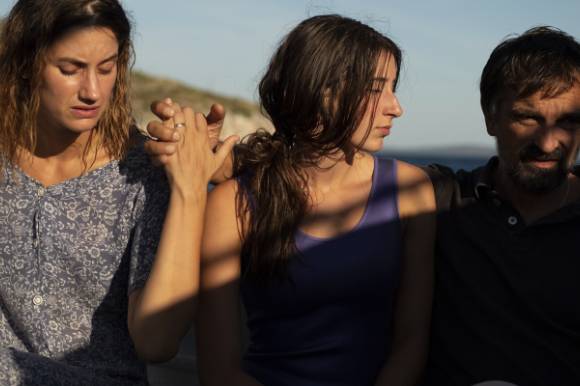 / 44.6 m HRK in 2020.
/ 44.6 m HRK in 2020.
The biggest exhibitor is Blitz Cinestar, followed by Cineplexx. Additionally, films are independently distributed through the Croatian Independent Cinemas Network, which includes 48 with 72 screens in 55 cities and on the islands. Eight new independent cinemas were digitalised and opened in 2021, all located in community-owned venues: cinema Kalnik in Križevci, Centar za kulturu in Mrkopalj, cinema Pitomača in Pitomača, Dječjakuća in Rijeka, cinema Slunj in Slunj, art-cinema Arsen in Šibenik, cinema Velilošinj in VeliLošinj and cinema Mladost in Županja.
Additionally, a new digitalised open air venue opened in Sutivan and a new mobile cinema Kino Istra was launched by the Motovun Film Festival.
The Ministry of Culture and Media invested 396,900 EUR / 3 m HRK in new digital equipment for independent cinemas.
The 10 most watched films in Croatian cinemas in 2021, according to BoxOffice.hr, were: No Time to Die (with 125,183 admissions), South Wind 2: Speed Up (with 114,216 admissions), Spider-Man: No Way Home (with 107,571 admissions), Dune (with 70,429 admissions), Venom: Let There Be Carnage (with 67,169 admissions), Fast & Furious 9 (with 65,569 admissions), Luca (with 61,654 admissions), Toma (with 60,744 admissions), Paw Patrol: The Movie (with 58,808 admissions) and House of Gucci (with 53,778 admissions).
The most viewed Croatian title of the year, according to the Croatian Audiovisual Centre (HAVC), was the minority coproduction South Wind 2: Speed Up / Južnivetar 2: Ubrzanje produced by Serbia’s Režim doo and coproduced by Serbia’s Telekom Srbija, hArchangel Digital Studios, Archangel Studios, Film District and Croatia’s Telefilm, with 114,216 admissions and 629,231 EUR / 4.7 m HRK gross.
The second place belongs to the documentary Love Around the World / Ljubav oko svijeta by Anđela and Davor Rostuhar, produced by KEK, Drugi plan and Autentic, which turned out to be a surprise hit with 16,917 admissions and 58,252 EUR / 438,061 HRK gross.
The international festival hit Murina directed by Antoneta Alamat Kusijanović holds the third place with 11,209 viewers and 38,385 EUR / 291,343 HRK gross.
Another debut feature, The Staffroom / Zbornica by Sonja Tarokić managed to get in the top five. The film about the lives of school teachers had 6,416 admissions and earned 27,275 EUR / 207,028 HRK in domestic cinemas.
Fifth place is held by experienced Croatian helmer Branko Schmidt with his feature film Once We Were Good to You / A bili smo vam dobri, 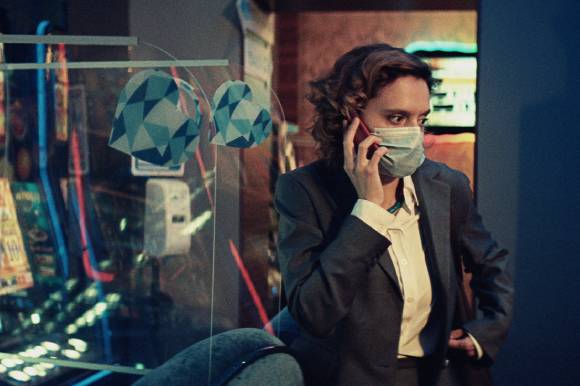 produced by Telefilm. The war veteran drama had 4,986 admissions and earned 20,053 EUR / 152,199 HRK.
produced by Telefilm. The war veteran drama had 4,986 admissions and earned 20,053 EUR / 152,199 HRK.
Other high-grossing Croatian films include Zrinko Ogresta's Blue Flower / Plavicvijet (produced by Inter Film) with 4,678 admissions, followed by Tune Up / Po tamburi, directed by Stanislav Tomić and produced by Kaos with 3,087 admissions, The Age of Uskoks / Doba Uskoka, directed by Božidar Domagoj Burić and produced by the Croatian Radiotelevision, with 2,978 admissions, The Dawn / Zora by Dalibor Matanić with 2,601 admissions, and Tereza37 directed by Danilo Šerbedžija and produced by Focus Media, with 1,646 admissions.
VOD PLATFORMS AND ONLINE DISTRIBUTION
In addition to international streaming services such as Netflix, HBO GO and Amazon Prime, the local streaming service Pickbox.hr, founded in 2014, remains a popular choice among the Croatian internet users.
Leading internet providers T-Com, Bnet and Iskon Internet provide IPTV services with VOD packages including international and domestic feature films, animated and documentary films, as well as TV series.
The Croatian Radiotelevision offers its own VOD service HRTi, free for all TV subscribers, offering a wide range of domestic and foreign productions. The broadcasters with a national concession, Nova TV and RTL, also offer VOD services with TV series, films and TV shows.
The Restart association pioneered independent VOD platforms in Croatia with their project Volim Dokumentarce, which offers a wide catalogue of Croatian and international documentary films, but also masterclasses by renowned documentary filmmakers. The films can be rented for 0.95 to 2.85 EUR or downloaded for 5.69 EUR.
The free of charge VOD platform Croatian.film, dedicated to the promotion of Croatian short films, and Kino Europa Online, dedicated to independent feature films, are managed by Propeler Film. Streaming on the Kino Europa Online platform ranges from free of charge to 1.90 EUR per film.
The SVOD platform Svevid presents Croatian and regional cinematography with titles from former Yugoslavia from the 1940s until the present day. Yearly membership fee is 48 EUR / 360 HRK, with the possibility to subscribe on a monthly or bi-yearly basis.
Kino Mediteran od doma is the VOD platform set up by the Kino Mediteran project, founded by the organisers of the Mediterranean Film Festival Split. The platform offers a variety of Croatian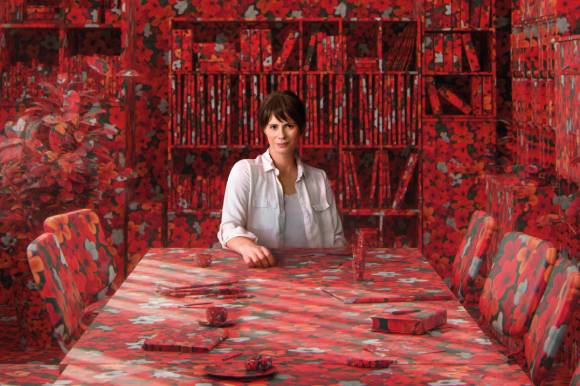 and international independent feature films, for a fee of 3 EUR / 20 HRK per film.
and international independent feature films, for a fee of 3 EUR / 20 HRK per film.
The independent cinemas Duga Resa, Lič, Plaški and Vrbovsko united their offers in the Kino.hr platform, maintained by the Radar distribution company.
In 2021 Croatia saw the launch of two VOD platforms, one from Croatia and one from Russia. Croatian distribution companyDiscovery film launched its new VOD platform MovieMix, offering a wide range of independent and classic films. Subscription fees range from 5 to 9 EUR per month.
In November 2021, the Russian VOD platform START opened its large catalogue from the former Soviet Bloc territories for Croatian viewers for 5 EUR per month.
GRANTS AND NEW LEGISLATION
The most important film institution is the Croatian Audiovisual Centre (HAVC) founded in January 2008 and led by Christopher Peter Marcich since 2019. HAVC provides public funding for the development, production, promotion and sales of Croatian film abroad, festivals, schemes and programmes aimed at widening audience choice, supporting film education, culture and archives, as well as skills and training initiatives.
The total budget of the HAVC in 2021 was 19.9 m EUR / 150 m HRK, according to the Ministry of Culture.
HAVC operated with a total budget of 9.11 m EUR in 2012, a total budget of 11.64 m EUR in 2013, of 10.975 m EUR in 2014 and 11.15 m EUR in 2015. HAVC’s total budget for 2016 was 10.8 m EUR, in 2017 it was 15.5 m EUR, followed by 11.1 m EUR (without cash rebate) in 2018. The total budget in 2019 was 19.9 m EUR, followed by the same amount in 2020.
In March 2021, HAVC awarded 277,200 EUR / 2.1m HRK to five minority coproductions, including the animated short film Real Cindarella / Prava pepeljuga by Sara Božanić, produced by Croatia’s Minya film i animacija and coproduced by Portugal’s Sparkle Animation and Montenegro’s Institute for Transmedia Design; the debut feature Sirin by Senad Šahmanović, coproduced by Montenegro's Cut-Up, Croatia's Sekvenca, Albania's On Film Production, Kosovo's Buka and Bosnia's Dokument; the feature film Kajmak by Milčo Mančevski, produced by Macedonia’s Banana Film and UK’s Scala Productions, and coproduced by Croatia’s Nukleus Film, Denmark’s Meta Film, the Netherlands’ N279 Entertainment and Bulgaria’s Dare Films; the feature film Pukotina u ledu by Maja Miloš, produced by Serbia’s Baš Čelik and coproduced by Croatia’s Propeler Film, the Netherlands’ Volya Films, Italy’s Nightswim, Slovenia’s Zavod Spok and Vertigo Ljubljana, and Montenegro’s Quadrifolium Films; and the long documentary Taj zvuk u visini by Srđan Keča, produced by Serbia’s Non-Aligned Films, Croatia’s Restart and France’s Bocalupo Films.
In addition, a request for support was approved for the additional costs of shooting of the short fiction film The Boy by Hrvoje Mabić, produced by Croatia’s Studio Dim, due to extraordinary circumstances caused by the COVID-19 pandemic. The film received 5,150 EUR / 39,000 HRK of additional support.
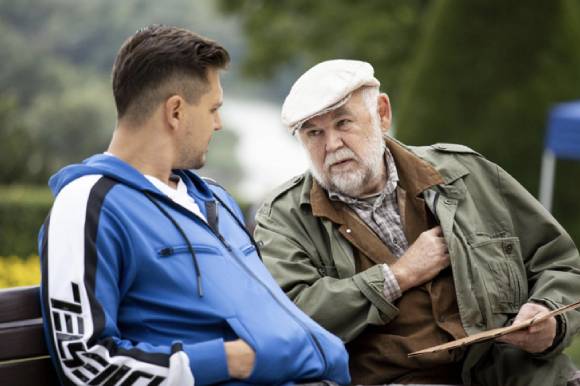 On 14 June 2021, the Croatian Audiovisual Centre distributed 2.1m EUR / 15.8 m HRK for the production of 20 feature, documentary and animated films. A total of 247,000 EUR / 1.85m HRK was awarded to five minority coproductions. God Will Not Help / Bog nećepomoći by Hana Jušić, produced by Kinorama, got the highest support of 641,000 EUR / 4.8 m HRK, out of 32 feature projects that applied. The artistic advisors also decided to support two debut features: Koke by Igor Jelinović, produced by Eclectica, and Blok 62 by Vanja Vascarac, produced by Antitalent. HAVC also supported the script development for 21 feature, animated and documentary films with a total of 78,666 EUR / 590,000 HRK, while 120,100 EUR / 900,000 HRK was awarded for the project development of nine feature films.
On 14 June 2021, the Croatian Audiovisual Centre distributed 2.1m EUR / 15.8 m HRK for the production of 20 feature, documentary and animated films. A total of 247,000 EUR / 1.85m HRK was awarded to five minority coproductions. God Will Not Help / Bog nećepomoći by Hana Jušić, produced by Kinorama, got the highest support of 641,000 EUR / 4.8 m HRK, out of 32 feature projects that applied. The artistic advisors also decided to support two debut features: Koke by Igor Jelinović, produced by Eclectica, and Blok 62 by Vanja Vascarac, produced by Antitalent. HAVC also supported the script development for 21 feature, animated and documentary films with a total of 78,666 EUR / 590,000 HRK, while 120,100 EUR / 900,000 HRK was awarded for the project development of nine feature films.
On 15 June 2021, HAVC additionally supported four feature films and two short films whose production had been affected by the Coronavirus pandemic, with a total amount of 126,434 EUR / 946,838 HRK. The supported features included Uncle / Stric by Andrija Mardešić and David Kapac, produced by Eclectica, the debut feature Closed to the Public / Zatvoreno za javnost by Vanja Juranić, produced by Maxima film, the feature film Safe Place / Sigurnomjesto by Juraj Lerotić, produced by Pipser, and debut feature Illyricvm by Simon Bogojević Narath, produced by Kinorama.
HAVC also distributed 133,533 EUR / 1 m HRK for the production of three short fiction films, 114,838 EUR / 860,000 HRK for the production of seven experimental films and 80,119 EUR / 600,000 HRK for the development of eight TV series.
Click HERE to see all the grants results in 2021.
On 29 December 2021, HAVC supported the production of three feature films with 1.2 m EUR / 9 m HRK. The supported projects included Žene, luđaci I malo dobrih pedera by Ivan Salaj, produced by Plavi mjesec, Prijeljeta by DanisTanović, produced by Propeler film, and 4:2 by Anđelo Jurkas, produced by DOP produkcija. Additionally, 13 documentary projects were supported with 400,350 EUR / 3m HRK in total, five animated films got a total of 468,200 EUR / 3.5m HRK, five experimental films got 740,000 EUR / 5.56m HRK in total, and short films received 186,250 EUR / 1.4 m HRK.
Under the Croatian cash rebate scheme, projects can claim back 25% of their qualifying expenditure, which is based on the cost of the Croatian cast and crew working in Croatia, as well as goods and services purchased in Croatia, with a cap of around 2.6 m EUR per project (exceptions allowed). Additional 5% is awarded to productions filming in regions of below average development.
Filming in Croatia, a department within the HAVC, ensures that Croatia remains a film-friendly location for both local and visiting filmmakers.
Zagreb Film Office was launched in 2019, with a goal of assisting both local and international film crews in their work in the Croatian capital. The Zagreb Film Office works under Zagreb Film, a city-funded institution known for its animation production, led by Vinko Brešan. The office is led by the local producer Mia Pećina Drašković.
The Istria Film Commission was launched in July 2015, following the example of the Zadar Film Commission in helping filming crews in location scouting, communication with public authorities and domestic producers and crew, obtaining filming permits and accessing databases. The Kvarner Film Commission opened in Rijeka in 2017.
Additional public support bodies are the Zagreb City Office for Education, Culture and Sport and the Rijeka City Office for Culture.
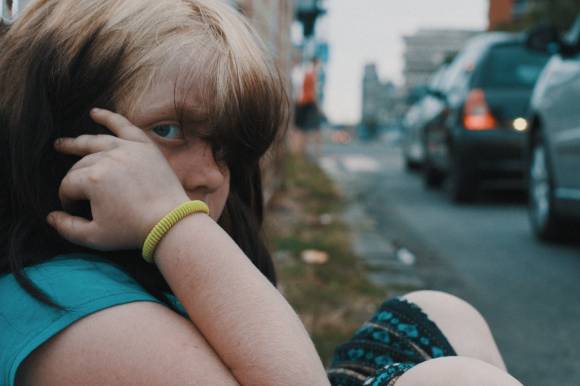 At the beginning of 2021, the Ordinance on the Categorisation of Audiovisual Works was followed, mid-year, by the Ordinance on the Procedure, Criteria and Deadlines for the Implementation of the National Programme for the Promotion of Audiovisual Creativity.
At the beginning of 2021, the Ordinance on the Categorisation of Audiovisual Works was followed, mid-year, by the Ordinance on the Procedure, Criteria and Deadlines for the Implementation of the National Programme for the Promotion of Audiovisual Creativity.
At the end of 2021, the following ordinances were adopted: Rules on the Register of Producers, Rules on the Distributor Register, and Rules on the Register of Exibitors, as well as Regulations on Maintaining Official Records on Filming.
Other important laws for the audiovisual sector that were approved in 2021 are the Electronic Media Act (harmonisation with the AVMSD - Audiovisual Media Services Directive) and the Copyright and Related Rights Act (OG 111/21) implementing harmonisation with the Digital Single Market Copyright Directive, Digital Market and amending Directives, as well as the Sat Cab 2 Directive, which lays down rules on the exercise of copyright and related rights applicable to Internet broadcasts and retransmission.
TV
As stipulated by the 2007 Croatian Film Act, the Croatian public broadcaster Croatian Radiotelevision (HRT), as well as all other Croatian broadcasters with a national concession (Nova TV, RTL), are obliged to contribute towards the funding of the HAVC.
As a public broadcaster, the Croatian Radiotelevision plays an important role in the promotion of national cinema through its two terrestrial and two digital channels, and it is legally obliged to invest a minimum of 15% of its programming budget in works by independent producers.
The hyper-productive director Dalibor Matanić filmed two new TV series in 2021. Both of them premiered at the end of the year and managed to gain wider international attention. The Silence / Šutnja is produced by Drugi Plan and the Croatian Radiotelevision in coproduction with Germany’s Beta Film, Ukraine’s StarMedia, OLL.TV and with the support of ZDF/ARTE. Based on the trilogy of novels by investigative journalist Drago Hedl, the six-episode series follows the interlinked stories of human trafficking in Kiyv and the Croatian town of Osijek, where the true story that inspired the novels happened in the late 1990s.
The Last Socialist Artefact / Područje bez signala by Dalibor Matanić is produced by the Croatian National Television and Kinorama, and coproduced by Serbia’s Sense Production, 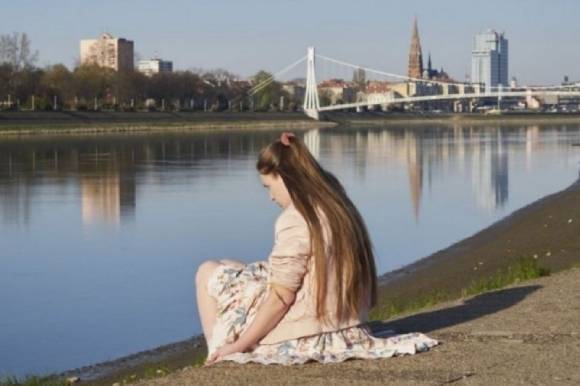 Slovenia’s Perfo Production and Finland’s Citizen Jane. The project also benefitted from the cash rebate programme. The six-episode series follows Oleg and Nikola, two “urban survivors” who are brought to a remote town in the Balkans when a mysterious Colonel places an order for a specific type of turbine. To deliver it, they need to renovate a long-abandoned factory in a town sunken into despair.
Slovenia’s Perfo Production and Finland’s Citizen Jane. The project also benefitted from the cash rebate programme. The six-episode series follows Oleg and Nikola, two “urban survivors” who are brought to a remote town in the Balkans when a mysterious Colonel places an order for a specific type of turbine. To deliver it, they need to renovate a long-abandoned factory in a town sunken into despair.
The private broadcasting company Nova TV premiered its new TV series Best Men / Kumovi directed by Darko Drinovac, Robert Orhel, Tomislav Rukavina and Zoran Margetić. Created by Dea Matas and Nataša Buljan, the 52-episode dramedy follows the complicated relationship of three interconnected families fighting over money and influence.
According to the Croatian Television Ratings Measurement Association (UMTG), Nova TV was the most popular TV channel in 2021, amounting to 22% of the viewership share. It was followed by HTV1 (18.6%), RTL (12.8%), Doma TV (8%) HTV2 (7.7%), RTL2 (5%), HTV4 (3.1%), RTL kockica (1.7%), HTV3 (1.6%) and N1 (1.1%).
CONTACTS:
CROATIAN AUDIOVISUAL CENTRE (HAVC)
Trg J. J. Strossmayera 410 000 Zagreb, Croatia
Phone: +385 (0)1 6041 080
www.havc.hr
This email address is being protected from spambots. You need JavaScript enabled to view it.
MEDIA DESK CROATIA
Ulica KraljaZvonimira 20
10 000 Zagreb, Croatia
Phone: +385 (0)1 4655 434
www.mediadesk.hr
This email address is being protected from spambots. You need JavaScript enabled to view it.
MINISTRY OF CULTURE AND MEDIA - DIRECTORATE FOR PERFORMING ARTS AND AUDIOVISUAL AFFAIRS
Runjaninova 2
10 000 Zagreb, Croatia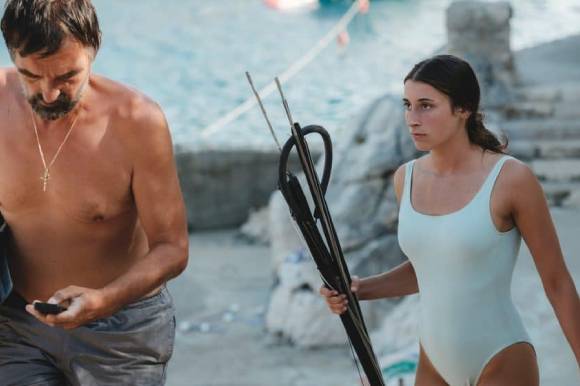 Phone: +385 (0)1 4866 200
Phone: +385 (0)1 4866 200
www.min-kulture.gov.hr
FILMMAKERS ASSOCIATION OF CROATIA
Britanskitrg 12
10 000 Zagreb, Croatia
Phone: +385 1 48 47 024
This email address is being protected from spambots. You need JavaScript enabled to view it.
www.hdfd.hr
CROATIAN PRODUCERS ASSOCIATION
Ilica 159
10 000 Zagreb, Croatia
This email address is being protected from spambots. You need JavaScript enabled to view it.
www.hrup.hr
CROATIAN FILM DIRECTOR’S GUILD
Boškovićeva 23
10 000 Zagreb, Croatia
Phone: +385 1 484 6852
This email address is being protected from spambots. You need JavaScript enabled to view it.
www.dhfr.hr
Report by Milena Zajović (2022)
Sources: Croatian Audiovisual Centre, Cityof Zagreb, Boxoffice.hr, theMinistry of Culture and Media, MEDIA Desk Croatia, Croatian Television Ratings Measurement Association



















